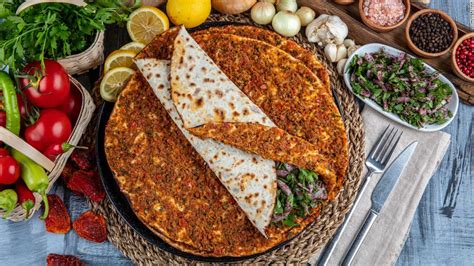Turkey has long been a crossroads of cultures, combining the influences of the East and the West to produce a marketplace brimming with exceptional goods that reflect its rich history and traditions. For entrepreneurs and businesses looking to diversify their offering with products unique in both quality and heritage, Turkey’s exports offer an array of captivating possibilities. From the intricately woven fabrics that attest to Turkey’s deep weaving tradition to the sweet delights that promise to tantalize taste buds across the globe, there is no shortage of items that embody the country’s blend of artistry and flavor. Add to this the exquisite handcrafted ceramics, the plethora of diverse agricultural goods, and the opulence of luxurious Turkish carpets, and you have a portfolio that can bring a touch of Turkish sophistication to consumers worldwide. Embrace the journey through the best products to export from Turkey, each one a chapter in the nation’s storied tapestry of trade and craftsmanship.
Titles
Unique Textiles: Discovering Turkey’s Rich Weaving Tradition
Embarking on a journey through the labyrinthine bazaars and quaint workshops of Turkey, one is immediately enveloped by a tapestry of vibrant hues and intricate patterns, each thread telling a story of the nation’s rich weaving tradition. From the nomadic tribes of Anatolia to the royal courts of the Ottoman Empire, the ancestral skills of creating exquisite textiles have been meticulously preserved, passed down from generation to generation, establishing Turkey as a bastion of unique and high-quality fabric arts.
The artisanship of Turkish weavers is not merely a craft, but a living dialogue with history, where these resilient guardians of tradition employ age-old techniques to produce works that exude both historical authenticity and contemporary elegance. Whether it be through the delicate dance of the shuttle on a loom, or the careful dyeing process using natural substances, each piece narrates the cultural and geographic diversity of this storied land—mirroring the various civilizations that influenced its storied past.
In this treasure trove of textile art, one cannot overlook the iconic kilims and sumptuous silks that have made their mark on international design. The patterns found within them are not random; they symbolize beliefs, tell tales of love and loss, and record the milestones of human life. Such is the level of sophistication and depth imbued in these textiles that connoisseurs and collectors alike are drawn to the Turkish shores, seeking to own a fragment of its woven legacy.
As Turkey continues to navigate the waters of modernity and tradition, the relevance of these textiles remains undiminished. Initiatives to preserve and revitalize these ancient techniques are of paramount importance, securing a place for Turkish textiles on both domestic hearths and foreign podiums. The legacy of Turkey’s weaving culture stands as an opulent testament to human creativity—a celebration of an art form that is as intricate as it is timeless.
Delicious Turkish Delights: A Sweet Treat for Global Markets
The confectionery landscape has been significantly sweetened by the presence of an Ottoman indulgence, the renowned Turkish delight or Lokum, which has managed to ensnare global taste buds with its exotic flavors and lush textural experience. Not merely a treat, these morsels are steeped in centuries-old culinary art, with their roots deeply entrenched in Turkish culture. It is a matter of immeasurable pride that this saccharine treasure has transcended borders, establishing itself as a beloved confection in international markets.
As a conflagration of sugar, starch, and a symphony of aromatic essences, Turkish delights offer a beguiling array of tastes that can include rosewater, lemon, pomegranate, and a medley of nuts such as pistachios, walnuts, and hazelnuts. What elevates the Turkish Delight from mere candy to gastronomic icon, however, is the meticulous production process—a tapestry of traditional techniques and precise timings that result in those delectably chewy cubes dusted with a delicate frost of icing sugar or desiccated coconut.
The allure of Turkish Delights lies not only in their taste but in the cultural narratives they carry. Once a luxury reserved for the elite and a staple during the religious month of Ramadan, these confections have found their way into packaged boxes exquisitely decorated to evoke the grandeur of their homeland. Transported across seas and continents, they symbolize Turkey’s warm hospitality and rich history, weaving an invisible thread that connects distant markets with the soul of Turkish culinary heritage.
Leveraging the power of globalization and the growing demand for ethnic and gourmet foods, Turkish Delights have been successfully marketed as both a niche gourmet item and a perfect gift from the crossroads of Asia and Europe. With every bite, they reveal a story of tradition, craft, and the universal language of sweetness, proving that the appeal of Turkish Delights is more than just taste—it is the experience of savoring a piece of Turkey’s storied past, now enjoyed across the globe.
Elegant Handcrafted Ceramics: Showcasing Turkey’s Artistic Heritage
Throughout the sprawling landscapes and historical layers of Turkey, lies a rich tradition of ceramic art that has evolved over millennia. The mastery explored in the country’s handcrafted ceramics is a colorful testimony to its intricate artistry and cultural depth. From the grandiose designs reflective of the Ottoman palaces to the simple elegance of rural craftsmanship, each piece is a narrative woven in clay, telling tales of the ancient civilizations that once thrived on this transcontinental land.
In the heart of the Anatolian peninsula, the town of Iznik burgeons as the epicenter of Turkish ceramic production, unearthing designs that resonate with the sophistication of the Seljuk and Ottoman empires. The hands of skilled artisans breathe life into the earthy material, creating exquisitely patterned Iznik tiles and pottery, which propagate the grandeur of Turkey’s artistic legacy onto the world stage. The precision in geometric designs and the vibrancy of the cobalt blue and coral red hues embody a timeless elegance that demands global admiration.
Navigating the market bazaars and workshops, one can behold the mesmerizing process as raw clay is transformed into ornamental wonders through the alchemy of hand-shaping, glazing, and firing. The fusion of traditional motifs with contemporary styles by ingenious ceramicists showcases a fluid adaptability, ensuring that the captivating allure of Turkish handcrafted ceramics seamlessly fits into the modern aesthetic while preserving its historical essence. This blend of the past and present remains pivotal in catapulting this celebrated art form beyond the confines of its origin.
Securing a cherished place in international homes and collections, Turkey’s luxurious ceramics continue to foster cross-cultural dialogues, bridging gaps with every ornate dish, vase, or figurine. As these artisanal creations journey from the kilns of Anatolia to the shelves of global connoisseurs, they do not merely represent an item of décor but become ambassadors of Turkey’s rich artistic heritage, ensuring that the story of Turkish elegance in craftsmanship continues to be narrated in homes worldwide.
Diverse Agricultural Goods: Unveiling Turkey’s Abundance
As one navigates through the lush and variegated landscapes of Turkey, they are greeted with a cornucopia of agricultural goods, a testament to the region’s fecund soils and conducive climate. From the verdant fields blossoming with vibrant produce to the sprawling orchards heavy with succulent fruit, the country’s bounty provides a colorful palette from which global cuisines draw ingredients. The rich Anatolian plains and the Mediterranean coast, alongside other fertile regions, make Turkey a significant exporter of high-quality edibles, offering nutritional wealth that spans continents.
Delving into the specifics, Turkey’s role as a leading exporter of cherries and figs shines brightly on the international stage. Admirers of these sweet morsels can trace their origins back to the sun-kissed Turkish terrain, where meticulous cultivation techniques honed over generations ensure optimal taste and texture. These fruits, along with prized exports such as apricots and hazelnuts, not only tantalize taste buds but also embolden Turkey’s economical prowess, solidifying its position as a pivotal player in the global agricultural sector.
Furthermore, Turkish agriculture is not limited to the dominion of fruits and nuts; the country is also a prominent supplier of cereals, pulses, and oilseeds, forming a cornerstone of many a dietary staple around the world. Vast plains ripple with golden waves of wheat and barley, while the legumes and seeds harvested offer a repository of essential nutrients for a myriad of cultures and cuisines. Turkey’s ability to grow and export such a diverse array of crops is integral to global food security and culinary innovation.
At the heart of Turkey’s agricultural success lies an intricate synergy between traditional farming methods and modern agricultural techniques, ensuring sustainability and productivity. This union manifests in the production of vibrant vegetables and olive oil, staples of the celebrated Mediterranean diet. The commitment to quality, diversity, and sustainability within Turkish agriculture does not only nourish the bodies of those who consume these products but also sows the seeds of cultural connections and economic vitality that span industries and borders.
Luxurious Turkish Carpets: Adding Style to International Homes
Steeped in centuries-old traditions and expert craftsmanship, Turkish carpets are renowned around the world for their intricate designs, vibrant colors, and unique storytelling. These sumptuous floor coverings from the crossroads of civilizations are not merely decorative items, but also symbols of the rich cultural tapestry that is Turkey’s history. Each knot and pattern woven into a Turkish carpet carries the legacy of artisans who have passed down their skills through generations, creating pieces that offer more than aesthetics but a connection to a storied past.
As global appreciation for bespoke and handcrafted products grows, so too does the demand for luxurious Turkish carpets. These exquisite textiles are finding their way into international homes, serving as focal points in living rooms, studies, and bedrooms. Beyond their beauty, the durability and high-quality materials used in the making of these carpets make them coveted additions to any interior design, blending seamlessly with both contemporary and traditional decors to add a sense of worldly elegance.
In the bustling marketplaces of Turkey, the haggling for these carpets adds to the allure, but their reach goes far beyond the local bazaars. Through online platforms and international trade, the beauty of Turkish carpets now garners attention across continents. Discerning customers seek out these hand-knotted marvels for their intricate artistry and the ethos of sustainable and timeless design they embody. The pride of Turkish craftsmanship is thus shared with a global audience, casting a spotlight on the region’s artistic heritage.
Every luxurious Turkish carpet tells its own story, and in the homes of international buyers, they also become part of new narratives. Whether anchoring a room with their grandeur or complementing the design elements of a space, these carpets continue to enchant and inspire. As ambassadors of Turkey’s artistic heritage, they not only add style to international homes but link diverse cultures through the universal language of beauty and the shared appreciation for the work of skilled artisans.






